2026 Author: Priscilla Miln | miln@babymagazinclub.com. Last modified: 2025-01-22 17:55:13
Many parents forget about moral and ethical education. Perhaps that is why children do not know how to behave, they do not have goodwill and elementary politeness. Schoolchildren sometimes show rudeness, aggression, cruelty.
What is ethical education
Each generation has its own views on many things. However, there are certain concepts and qualities of a person that are transmitted from year to year. For example, humanity, politeness, goodwill, responsibility, culture of behavior, understanding, respect. Human qualities can be listed endlessly, but they do not appear by themselves. Only adults instill them in a child.

The foundation of daily parenting is a positive example. After all, the baby absorbs good and bad from early childhood. What a child will become depends on the pattern of behavior that he observes from an early age.
How do gadgets affect education
Phones, tablets, computers greatly influence the formation of personality. The information a child obtains from the Internet cancontradict ethical standards. What's more, constant online activities quite often separate children from the real world.
For many children, a gadget is their best friend. They devote most of their time to him. Mom or dad gets tired of persuasion and gives up - they allow you to sit in games for quite a long time. As a rule, the child goes to school and already there begins to behave negatively towards others. What is most offensive, children are not to blame for their behavior, because they were never taught the usual rules of etiquette.
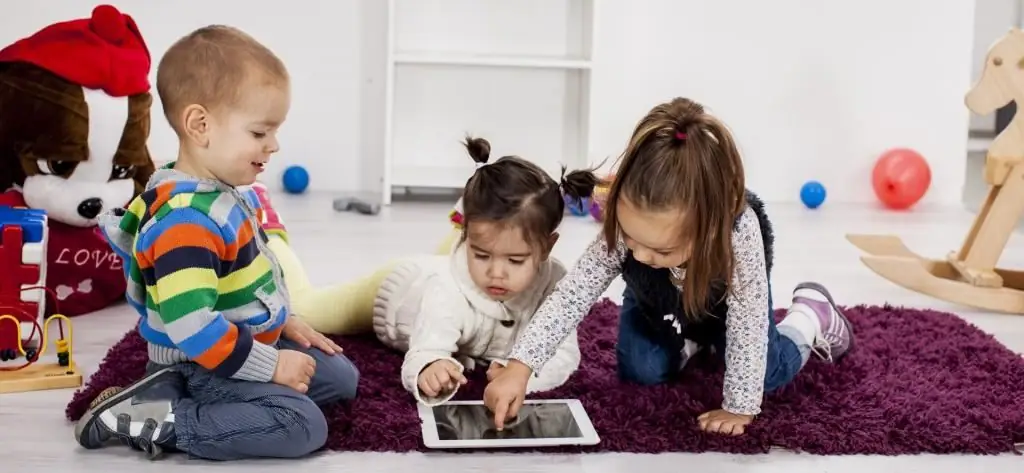
Of course, gadgets are not a bad influence for everyone. Children also get useful information from the Internet. Therefore, they become smarter and more advanced people. Thanks to educational cartoons, kids will learn the rules of etiquette, courtesy, good manners. With the help of educational games, they learn to write and read before school.
Goals and objectives
Moral education is a complex multifaceted process of relations between parents and a child, which consists of the following tasks:
- To form morality in children.
- Educate and develop moral feelings.
- Develop certain skills and habits of behavior.
Parents need to set goals and objectives for ethical education from the moment the child is very young.
Parents and educators should show their humanity, kindness and justice. In order not to interfere with this education, it is necessary to blame the insolence and rudeness of other children who walk with yourbaby.
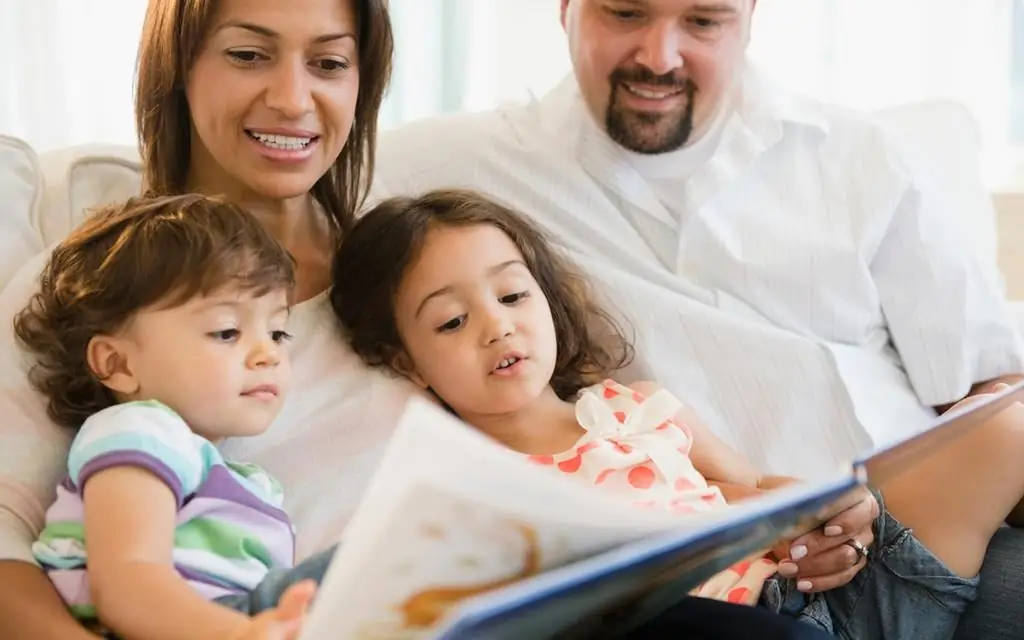
The goal of every parent should be for the baby to be able to communicate with others, to behave in a civilized and polite society.
To achieve goals and objectives, it is important that adults pay much attention to children, encourage good deeds, approve of friendly games, and provide assistance in difficult situations. In this way, parents are already teaching morality from a young age.
An important condition for moral education
As already mentioned, parents should support a positive emotional state of the child. One of the important conditions for the successful development of morality is the creation of a cheerful and cheerful environment.
Only adults can keep a child confident. Children need to know that mom or dad is always there. They will not offend, but protect their baby from any negativity from others.

Only the optimism of parents helps children wake up cheerful, cheerful and cheerful. Such a mood in a child lasts all day if he knows that his father and mother love him and will not be offended.
Moral education for preschoolers
And so the child went to kindergarten. Now parents can not give him all their attention. He had an environment in the form of children, nannies and caregivers. Of course, if mom and dad managed to teach the baby what is bad and what is good, then the child will easily contact new people. If the parents did not teach the crumbs elementary things,he will be very ill in kindergarten. He won't be able to behave properly.
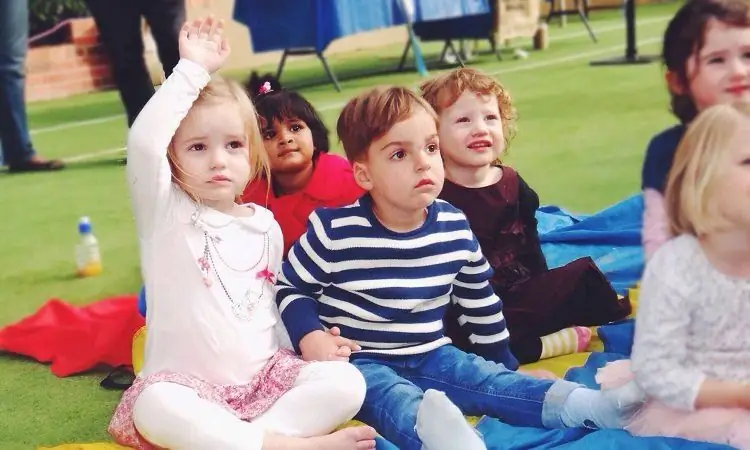
With the right approach to education, preschoolers easily perceive complex relationships in society. Quite often, children misrepresent friendship, kindness, honesty, and fairness. That is why there are frequent conflicts in his environment.
Education of younger students
Even younger students do not always understand the rules of etiquette. They just don't have the right idea sometimes. For example, they often confuse such concepts as "kind", "honest", "fair". Children associate these concepts only with "Being good." If such a child is asked: "What does it mean to be fair?", he will answer: "To be kind, affectionate and obedient." And the concept of "Be nice" for them means: "Skip Grandma out of line" or "Give way on the bus."
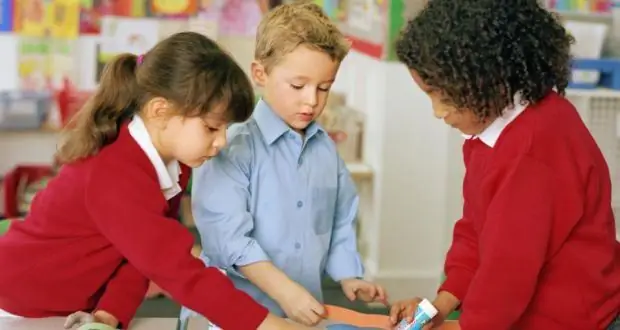
Some kids may be happy with an accurate and meaningful answer. They understand perfectly well that being kind means sharing a toy, sweets, helping a person who is in trouble. Fairness is being honest with others and not putting the blame on the other person.
When you form the ethical education of junior schoolchildren, you do not need to demand from them an exact definition of the above concepts. After all, the child will understand the content only when he sees a specific example.
Socio-ethical norms
Social norms are slightly different from moral ones. With socio-ethicalupbringing, adults pay the attention of the child more to the behavior and communication in society. To do this, adults should read such fairy tales to the baby, where good triumphs over evil, and justice is above all. Books are read to children for a long time, not because they are voluminous, but so that the kids begin to understand and assimilate everything. Of course, they will not remember all the information, but the important thing will be deposited in their head.
After children get acquainted with fairy tales, works, they will learn to empathize. Of course, you need to read with intonation, logical stresses to convey the main points so that the child is happy or worried. After reading, discuss the story, but only carefully. After all, the baby should gain a foothold in emotions, and not collapse. It is thanks to social and ethical education that a child becomes a confident person who will be easy in the future.
Parenting students
Teenagers are almost adults and need to be prepared for the future more responsibly. For them, a social institution is a family, an educational system and a university. The main problem of today's conflict youth is the unwillingness to cooperate with adults. Teenagers react emotionally, rudely and with anger to any remark.
If a teenager has conflict behavior, he is not to blame. The problem should be looked for much deeper, for example, in the family in which the child grew up. Most likely, these students did not have moral and ethical education. Most often, parents forget that a teenager is still a child and do not talk to him, attributing to their employment, fatigue and other excuses. However,as Sukhomlinsky says: “Children are above all. Never prioritize work, parents, or spouse.”

Due to the employment of parents, teenagers are engaged in an educational institution, where they provide social and moral education. So it turns out that it is teachers who need to emotionally liberate students and give them confidence. The student must feel the atmosphere of freedom, and then he will become a completely different person.
In addition, it is advisable for a teenager to go to some sections where he will participate in competitions, contests, exams. It is then that he will understand how to work on himself and his behavior.
Conclusion
So, in the process of communicating with children, adults from an early age form a positive attitude towards the environment in children. Learn to rejoice, have fun, grieve. Emotions strengthen positive qualities in people that are not immediately noticeable, but at least in adolescence.
Of course, one should not exaggerate the strength of feelings that were formed in preschool age, but at the same time, it must be remembered that it is at this age that the intensive development of a person's personality takes place. If parents do not know how to explain the rules of etiquette to a child, it is better to refer to the moral code, where everything is described in an accessible way.
Recommended:
Education technology is The concept, features, new methods, goals and objectives
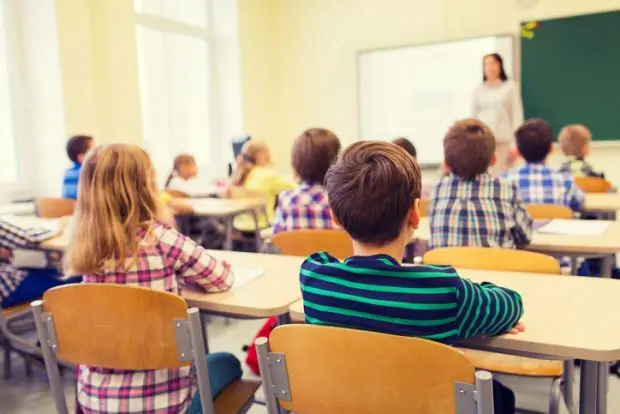
Education technology is a special system of methods, procedures and techniques of educational activities, where teachers hone their skills. Thus, the level of preparation of the teacher and educator is displayed. If his methods work in practice, it means that he has reached a certain level of skill
The concept of spiritual and moral education: definition, classification, stages of development, methods, principles, goals and objectives
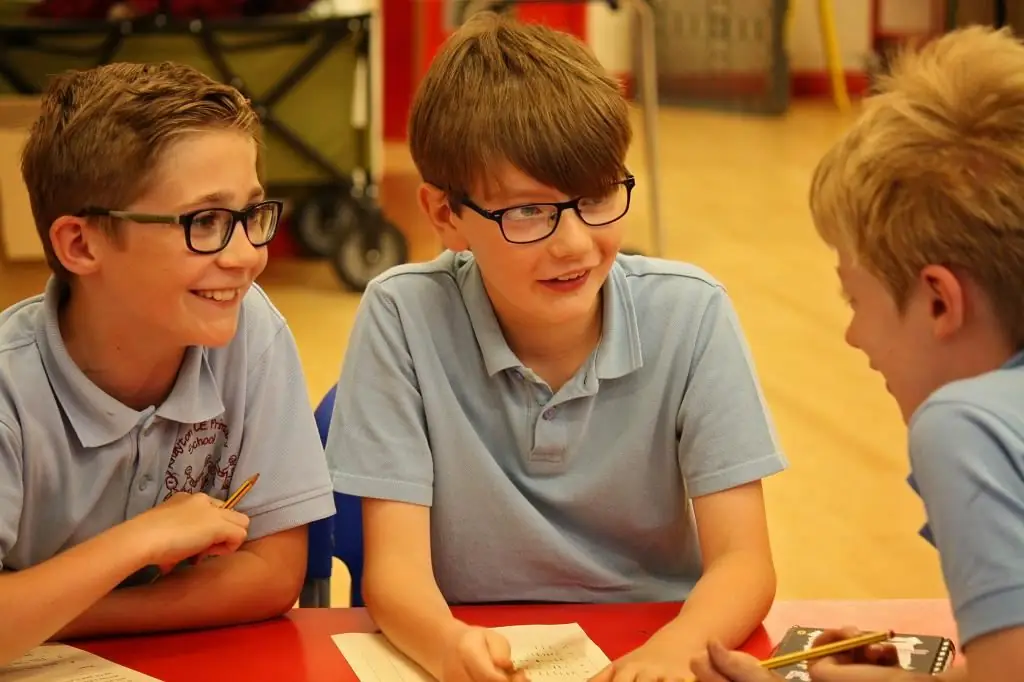
Definition of the concept of spiritual and moral education, ways of developing the education system and its main sources. School activities and development outside of school, the influence of family and close circle
Game exercises: types and examples, goals and objectives
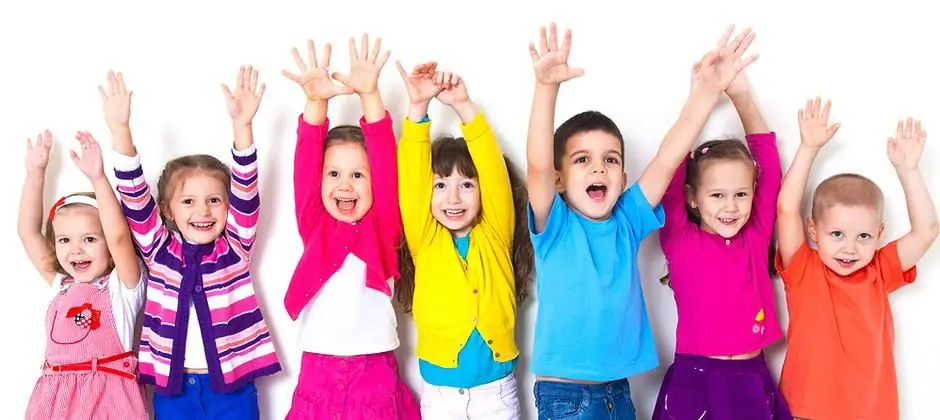
Games and game exercises are very important for a child from the first years of life. They are needed for its development, perception of the outside world. Correct games help to teach the baby to think, reason, distinguish between actions, sounds, colors, and make independent decisions in the future. Game exercises for children are necessary at every stage of development
Labor education of preschoolers in accordance with the Federal State Educational Standard: goal, objectives, planning of labor education in accordance with the Federal State Educat
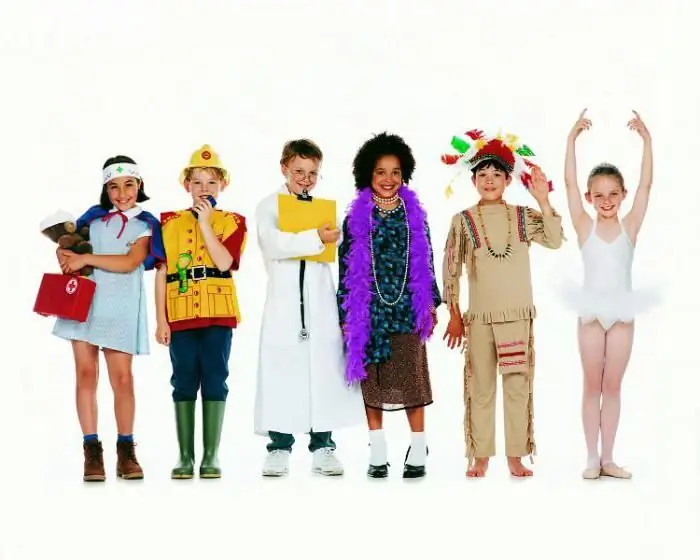
The most important thing is to start involving children in the labor process from an early age. This must be done in a playful way, but with certain requirements. Be sure to praise the child, even if something does not work out. It is important to note that it is necessary to work on labor education in accordance with age characteristics and it is imperative to take into account the individual capabilities of each child. And remember, only together with parents can you fully realize the labor education of preschoolers in accordance with the Federal State Educational Standard
Physical education: goals, objectives, methods and principles. Principles of physical education of preschool children: characteristics of each principle. Principles of the system o
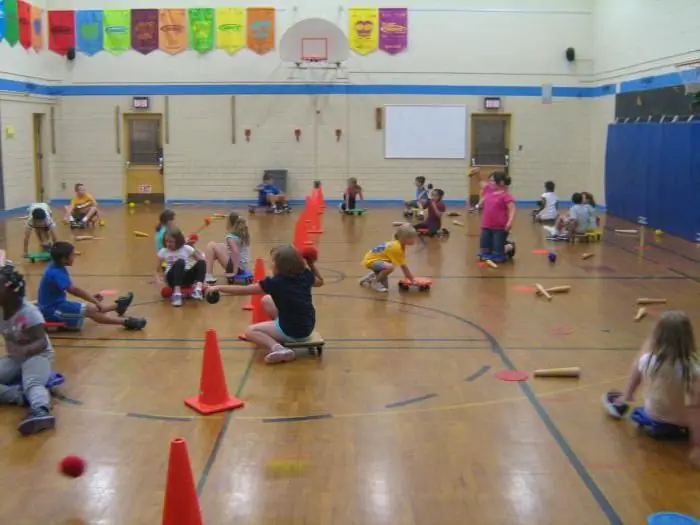
In modern education, one of the main areas of education is physical education from an early age. Now, when children spend almost all their free time on computers and phones, this aspect becomes especially relevant

